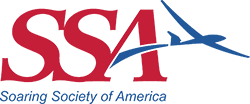Norman H. Ellison was born on September 11, 1931 in Luton, Bedfordshire, England, the son of Robert and Lilian Ellison. He was raised in England where he attended school. He did an Aeronautical apprenticeship at Percival Aircraft Ltd, Luton and completed the apprenticeship as a fully qualified jig and tool designer. Mr. Ellison served with the National Service from 1953 to 1955 with the Royal Navy Fleet Air Arm, as a Petty Officer Designate on the aircraft carrier HMS Indefatigable and sailed on her to the West Indies. Later, he was stationed at the Royal Naval Air Station at Culdrose in Cornwall where he flew in Percival Sea Prince aircraft, the type that he helped to build at Luton.
From 1955 to 1979 he worked at the English Electric plant at Whetstone, Leicester, and then in the Jig and Tool Drawing Office at Jones and Shipman Machine Tools in Leicester. Subsequently, he went back into the aviation industry with a period at Armstrong-Whitworth Aircraft Ltd at Baignton, Coventry where he worked on the TSR2. When the government axed this project he joined Auster Aircraft Ltd, Reasby, Leicester.
In 1967 he had an opportunity to work on manufacturing sailplanes and joined Slingsby Sailplanes Ltd at Kirkbymoorside in North Yorkshire some 30 miles from York. At this point he moved with his family from Blaby to Kirbymoorside. However, in November 1968 a fire destroyed much of the factory and the company later went bankrupt. In 1969 a new company, Torva Sailplanes, Ltd., was formed in nearby Scarborough to design and build sailplanes and glider equipment. Norman joined the firm in October 1969 and was involved in the design of the TORVA Type TA glider, a single-seat, Glass Reinforced Plastic craft. Later, sailplane manufacturing was restarted at Slingsby after Vickers Ltd of Barrow-in-Furness took over the assets of the old company. Norman went back to Slingsby and worked in the drawing office and later on he worked with the inspection team.
In 1979 he moved to Seattle to take up a two-year contract at Boeing
Commercial Airplane Co Ltd in Seattle. He left on July 1, 1995 on his retirement.
Mr. Ellison enjoyed gliding and was a member of the Boeing Employees Soaring Club serving as secretary, member of the Seattle Glider Council where he held positions of secretary, Chairman and Board of Directors. He was also a member of the Britannia Club. Nationally he served as Washington State Governor of the Soaring Society of America and assisted the National Soaring Museum by gathering significant information about pioneers of soaring in the Northwest. He won several badges in gliding and delighted in organizing and managing annual Regional and National soaring contests sponsored by the Seattle Glider Council in Ephrata, Washington.
He owned two sailplanes, the first one was a Slingsby Skylark (tail ID: 2 Easy), and most recently he owned a Standard Libelle. He happily adorned his latest glider with an unusual tail ID (an exclamation mark!).
Mr. Ellison was the author of two books, British Glider and Sail Plane and Percivals Aircraft. In addition he contributed to “Thursday’s Child” about Ricardo Morrow Tate to be published in October, 2001 in England. He also did Soaring Historical Research.
Mr. Ellison was very interested in and knowledgable of classical music. He enjoyed the symphony and the opera and had a wonderful collection of classical music.
He became a US citizen in 1982. That same year he met and married Alison R. Ridgwell. He became a baseball coach for his stepson and learned the rules of the game to the point of being able to give advice to other coaches.
Mr. Ellison kept in touch with his many friends over the world via email
and letters. He was a very kind and gentle man with a great sense of humor and will be missed by everyone.
Mr. Ellison is survived by his wife Alison, of Bellevue; his sons Peter
Ellison of England and Stephen Ridgwell of Bellevue; two brothers, Max Ellison and John Ellison both of England, two nieces and one nephew.
—Vince Miller



Leave A Comment
You must be logged in to post a comment.